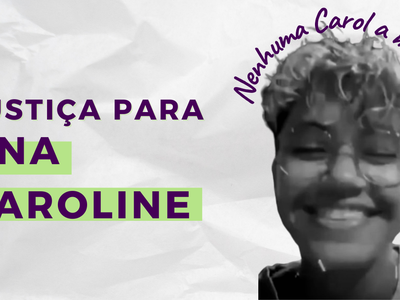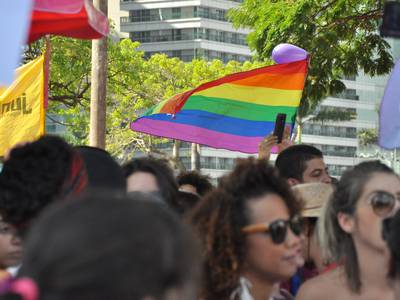We are calling on the Constitutional Court to review the tutela filed by Andrea Burgos, an Afro and trans woman sentenced to 10 years in prison without evidence in Buenaventura, Colombia.
Update: November 6, 2025 - Progress in the fight for justice for La Burgos! The Constitutional Court has selected her case, from among thousands, for review. This means her sentence will be reconsidered thanks to the pressure exerted by thousands of people around the world, local activists, and her lawyers. However, the fight is not over. For La Burgos to achieve her freedom, we must continue to exert pressure and gather signatures to show the court that the world is watching.
----
The Colombian Pacific is a land of life, culture, and resistance—but also of exclusion, racism, and denial of rights. The case of Andrea Burgos, a Black trans woman and influencer from Buenaventura, reveals this reality. Her story reflects how the Colombian judicial system continues to fail to guarantee equality for all bodies.
Andrea was sentenced to nearly 10 years in prison without evidence, without real legal defense, and without ever being notified of the trial. Her case is not a mistake: it is a judicial false positive—a conviction without justice, masked by an appearance of legality. The State needed results and found in Andrea the perfect victim: racialized, poor, dissident, and without institutional support.
From the beginning, Andrea was targeted because of her gender identity. She was detained without a warrant and not in the act of committing a crime, violating her rights to liberty and due process. During her detention, she was humiliated, beaten, and verbally abused. She was accused of carrying a weapon that never appeared, and the transphobic violence she endured was not corrected—it was legitimized by the judicial system.
Key failures in the judicial process:
1) Arbitrary arrest and homophobic treatment: She was irregularly deprived of her liberty, searched without authorization, and assaulted because of her gender identity.
2) Violation of the right to a defense: Although there were ways to contact her, only one call was made and went unanswered. Neither the court nor the public defender followed up. The trial proceeded without her.
3) Disproportionate sentence: She was sentenced to 10 years without evidence, without a fair hearing, and without the right to appeal. One magistrate noted that the ruling was disproportionate and lacked minimum guarantees.
Andrea represents many who live at the intersection of poverty, gender, and racialization. Her case shows how the justice system swiftly excludes and punishes those it deems disposable. Her trial moved forward as if her existence didn’t matter.
This is not an isolated incident. In regions like the Pacific, the State does not bring justice—it brings punishment. Being trans, Black, poor, or dissident remains grounds for suspicion, criminalization, and conviction. Andrea wasn’t defended—she was discarded.
That is why this case is key for Colombia. It shows that if the State can convict someone without defense, without evidence, and without a hearing, it can do the same to anyone it deems unworthy of being heard.


